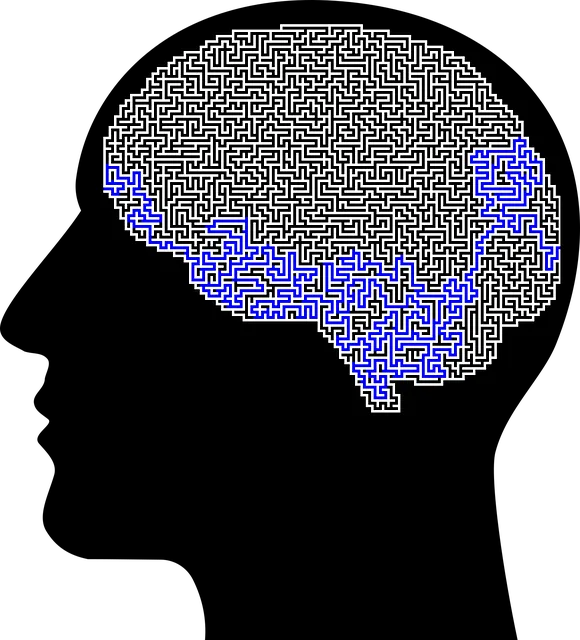Colorado Springs Kaiser Permanente employs a multi-faceted approach to mental health care, combining quantitative data (diagnosis rates, treatment outcomes) with qualitative feedback from patients. This strategy allows for identifying community trends and implementing targeted interventions. The Mental Health Initiative focuses on provider well-being through mindfulness and self-care practices, while leveraging advanced data collection techniques and machine learning algorithms to predict potential episodes. By analyzing trends and patterns, the organization develops tailored interventions like Stress Management Workshops to promote emotional well-being. Effective communication of mental health findings, using relatable analogies and evidence-based practices, boosts patient comprehension and engagement, ultimately enhancing care outcomes at Colorado Springs Kaiser Permanente.
Mental health data analysis is a powerful tool for understanding complex psychological landscapes. This article delves into the critical process of interpreting mental health data, drawing insights from initiatives like the Colorado Springs Kaiser Permanente Mental Health Initiative. We explore various data collection and analysis methods, offering strategies for effective communication of findings. From comprehensive overviews to specific case studies, this guide illuminates how data can drive meaningful change in mental healthcare.
- Understanding Mental Health Data: A Comprehensive Overview
- The Colorado Springs Kaiser Permanente Mental Health Initiative
- Data Collection and Analysis Methods for Mental Health Research
- Interpreting Results: Unlocking Insights from Mental Health Data
- Strategies for Effective Communication of Mental Health Findings
Understanding Mental Health Data: A Comprehensive Overview

Understanding Mental Health Data involves a comprehensive overview of various metrics and indicators that paint a picture of an individual’s or population’s psychological well-being. In the context of Colorado Springs Kaiser Permanente mental health services, this includes a diverse range of data points such as diagnosis rates, treatment outcomes, patient demographics, and qualitative feedback from patients themselves. By meticulously analyzing these data, healthcare professionals can identify trends, patterns, and outliers that may signal areas needing targeted interventions or improved services.
This process goes beyond mere numbers, incorporating qualitative insights such as patient narratives, therapy session notes, and surveys focused on self-esteem improvement, emotional intelligence, and social skills training. Integrating these diverse data sources allows for a more nuanced understanding of mental health issues within the community, guiding evidence-based strategies that foster better outcomes and enhanced access to care.
The Colorado Springs Kaiser Permanente Mental Health Initiative

In Colorado Springs, the Kaiser Permanente Mental Health Initiative stands as a beacon of hope and progress in addressing mental wellness within the healthcare sector. This pioneering program recognizes the immense pressure healthcare providers face, often leading to burnout and decreased job satisfaction. Aiming to counteract these trends, the initiative focuses on implementing Burnout Prevention Strategies for Healthcare Providers, emphasizing the importance of self-care and work-life balance. Through a multifaceted approach, it incorporates Mind Over Matter Principles and promotes practices such as Mindfulness Meditation as powerful tools for stress reduction and resilience building.
The Colorado Springs Kaiser Permanente Mental Health Initiative encourages open dialogue about mental health challenges and fosters an environment where providers feel empowered to seek support. By integrating these innovative strategies into daily practice, the initiative seeks to enhance not only individual well-being but also the quality of patient care. This holistic approach underscores a growing recognition that mental wellness is integral to the overall health and effectiveness of healthcare systems.
Data Collection and Analysis Methods for Mental Health Research

In the realm of mental health research, effective data collection and analysis methods are pivotal for understanding and addressing psychological well-being challenges. Organizations like Colorado Springs Kaiser Permanente play a significant role in this domain, utilizing advanced tools to gather comprehensive mental health data. They implement various techniques such as structured interviews, surveys, and electronic health record (EHR) reviews to capture patient experiences, symptoms, and treatment outcomes. This multi-faceted approach ensures a holistic understanding of mental health trends within their population.
The analysis of these data sets often involves statistical methods tailored to the nature of the information. For instance, identifying patterns in large EHR databases can reveal correlations between specific treatments and improved mental wellness, guiding evidence-based decisions. Additionally, the application of machine learning algorithms enables predictive modeling, potentially forecasting mental health episodes and facilitating timely interventions. Integrating these data collection and analysis strategies, such as those championed by Mind Over Matter Principles and Mental Health Education Programs Design, empowers researchers to unravel complex mental health issues, ultimately enhancing overall mental wellness.
Interpreting Results: Unlocking Insights from Mental Health Data

When analyzing mental health data from organizations like Colorado Springs Kaiser Permanente, interpreting results accurately becomes a powerful tool for understanding and improving emotional well-being. This involves delving into trends and patterns within the collected data to uncover insights that can guide targeted interventions. By applying advanced statistical methods and data visualization techniques, professionals can identify key factors contributing to mental health outcomes among employees or patients.
For instance, analyzing stress levels across different departments could reveal hidden correlations between job roles and emotional strain. This knowledge enables the organization to design tailored Stress Management Workshops for at-risk groups, fostering effective Emotional Well-being Promotion Techniques. Through such data-driven insights, Colorado Springs Kaiser Permanente can create a more supportive work environment, ensuring a healthier and more productive community within its walls.
Strategies for Effective Communication of Mental Health Findings

Effective communication of mental health findings is paramount for ensuring patient understanding and fostering a supportive environment at Colorado Springs Kaiser Permanente. To achieve this, healthcare professionals can employ several strategies tailored to diverse patient populations. One powerful approach involves translating complex data into accessible language, using analogies and examples relevant to patients’ lives to illustrate their mental health status and treatment plans. This method improves comprehension, empowering individuals to actively participate in their care.
Additionally, incorporating evidence-based practices like Mindfulness Meditation and Trauma Support Services during communication sessions can create a safe, non-judgmental space. By integrating these techniques into conversations, healthcare providers demonstrate a commitment to Emotional Regulation strategies that resonate with patients’ experiences. Such personalized, empathetic communication fosters trust, enhances patient-provider relationships, and ultimately contributes to more successful mental health outcomes at Colorado Springs Kaiser Permanente.
Mental health data analysis and interpretation are pivotal in understanding and improving psychological well-being. The Colorado Springs Kaiser Permanente Mental Health Initiative exemplifies successful data-driven strategies, showcasing how comprehensive understanding can lead to effective interventions. By employing robust data collection methods and advanced analytical techniques, researchers unlock insights that guide policy and practice. Effective communication of findings is essential for fostering public awareness and encouraging help-seeking behaviors. Integrating these elements—from data understanding to interpretation and communication—enables us to navigate the complex landscape of mental health and create a more informed, supportive society.






